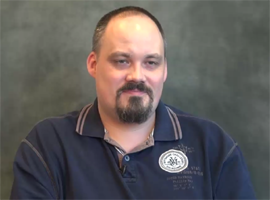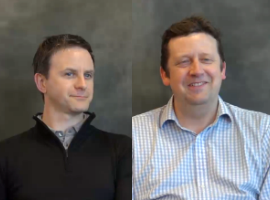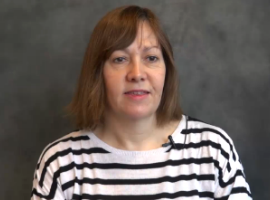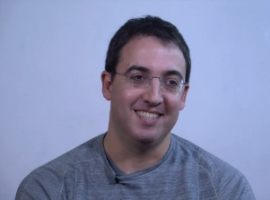InfoQ Homepage Agile in the Enterprise Content on InfoQ
-
Sally Elatta on the Agility Health Check Tool
Sally Elatta talks about the Agility Health Check tool, with examples of where it has been used, the way teams and organisations can use the information collected and how the tool itself is evolving in response to market demand

-
Ian Culling on DevOps and the Latest Innovations from VersionOne
Ian Culling talks about the state of agile adoption, how organisations want to buy "the DevOps" and new features in the VersionOne product suite

-
Improving Technical Skills and Agile Practices
Ruud Wijnands talks about things that can and do go wrong with Agile transitions, improving technical skills and practices, supporting people in learning, the value that agile can bring to organizations and giving managers more insight into the possibilities of agile, helping teams to increase their agility and what managers can do to increase the success of agile transitions.

-
The Importance of Technical Practices in Agile
Tim Ottinger talks about things that can and do go wrong with Agile transitions, why facilitation matters in agile, increasing the understanding of agile, what is needed to create trust in the organization, the importance of technical practices in Agile, improving technical skills and practices and the “Taking back Agile” initiative.

-
Tony Grout and Chris Matts on Skype's Agile Transformation
Tony and Chris describe how Skype transformed their operations to adopt agile methods across 200+ teams spread over eight locations around the world. They discuss what worked, some of the challenges and share ideas that other organisations may be able to use in their own transitions.

-
Rachel Davies on Whatever Happened to Being Extreme
An interview with Rachel Davies about extreme programming and agile techniques, good things that have happened since the agile manifesto was published, developments that give agile a bad name and things that can be done to prevent that people think badly about agile and start to resist it and how scrum teams can adopt more technical practices from XP.

-
Helen Walton and Pete Burden on Creating the Culture You Want
At QCon London Helen Walton and Pete Burden discussed what it takes to design a collaborative, agile supporting culture in an organisation, if it is possible for large organisations to actually change and what is needed to enable that change. The spoke about the Spark the Change conference and how it is a showcase of organisations that are actually working in new ways.

-
Jenni Jepsen on the Neuroscience Behind Why Agile Works
Jenni explores the neuroscience which shows why agile works, how it links to the factors that motivate people (using the SCARF model) and how leadership at every level and shows how empowering people is necessary for organisational success.

-
Frank Tino Talks About His Experience Adopting OpenSpace Agility
Frank Tino is an executive at a large software company who brought Agile to his organization using an invitational approach, instead of imposing practices on teams. He used a method called OpenSpace Agility to bring an entire enterprise into the process of experimenting with Agile principles and practices, in service to getting a rapid and lasting Agile adoption at scale.

-
Aino Corry on Agile Retrospectives
Aino Corry talks about overcoming barriers in retrospectives, facilitating effective retrospectives, techniques for doing retrospectives and the vital skills that retrospective facilitators need.

-
Yuval Yeret on Using Kanban for Agile Adoption
InfoQ interviewed Yuval Yeret at the Lean Kanban France 2014 conference about kick starting Agile the Kanban way. He explained how teams can do pull-based change using Kanban, skills for change managers and patterns that can be used to support agile adoption in enterprises.

-
Sandy Mamoli on Self-Organising Organisations and Personal Kanban
Sandy explains how Trade Me adopted a truly self-organising model of team formation to establish ten product development squads and how she and others use Personal Kanban to prioritise and manage work.
